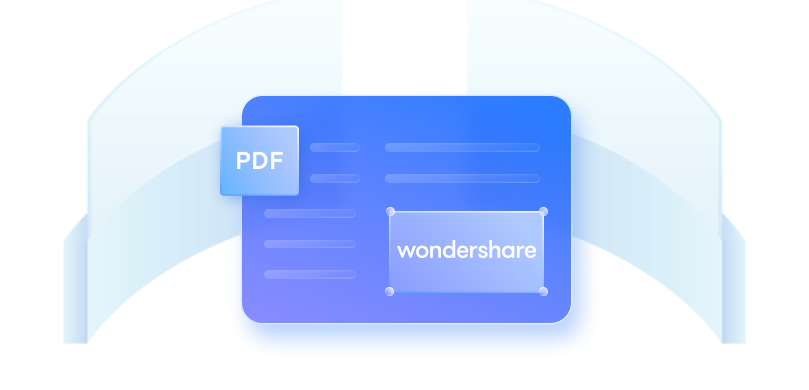Wondershare PDFelement
What's Electronic Signature?
An electronic signature (also known as "e-signature"), is a digital representation of a person's handwritten signature or a symbol or mark used to sign a document electronically. Nowadays, electronic signatures are widely used and legally recognized in many countries and regions around the world, provided certain conditions are met to ensure the authenticity and integrity of the signature.

Digital Signature Certificate Knowledge.
What are the
benefits
of making an electronic signature on PDFs and other documents?
What kinds of documents are electronic signatures
used in
?
Electronic signatures on PDF
examples
.




How to request electronic signatures on PDFs?
Requesting and creating an electronic signature in PDFs is like a breeze with Wondershare PDFelement.
Step 1. Access the Request eSign Feature
Import your desired PDF into PDFelement. Click "Protect" > "Request eSign." In the popup window, add signers' emails and arrange the signing order.
Step 2. Create Signer Fields
Add signature, date, title or company fields into the document, and assign the fields to corresponding signers.
Step 3. Send the PDF for Electronic Signature
Send the PDF to signers and track the signing process on any device. The signers can get access to the PDF through an email link and append electronic signatures by uploading an image, drawing or typing signatures.
Electronically Sign PDFs FAQ.
1. Are electronic signatures legally binding?
Yes, electronic signatures are legally binding. The use of electronic signatures has become widely accepted and recognized as a valid form of agreement in many jurisdictions around the world.
In the United States, the Electronic Signatures in Global and National Commerce Act (ESIGN) and the Uniform Electronic Transactions Act (UETA) both establish the legal validity of electronic
signatures. These laws recognize that electronic signatures can be just as enforceable as traditional handwritten signatures, as long as certain requirements are met.
ESign applications, like PDFelement eSign feature which complies with ESIGN, ISO 27001, HIPAA and other internet security-related standards, ensuring that your electronic signatures are not only legally sound but also incredibly convenient.
ESign applications, like PDFelement eSign feature which complies with ESIGN, ISO 27001, HIPAA and other internet security-related standards, ensuring that your electronic signatures are not only legally sound but also incredibly convenient.
2. How does an electronic signature work?
An electronic signature works by digitally capturing a person's signature or a unique identifier and attaching it to an electronic document. This can be done through an eSign application,
like PDFelement, which provides various methods such
as uploading an image of your signature, drawing your signature with the mouse or on a touchpad, and typing the name with a specific font or style.
The electronic signature is then securely stored. When the document needs to be verified, the electronic signature can be compared to the stored signature to ensure that it has not been tampered with. This allows for a quick, efficient, and legally binding way to sign documents without the need for physical paperwork.
The electronic signature is then securely stored. When the document needs to be verified, the electronic signature can be compared to the stored signature to ensure that it has not been tampered with. This allows for a quick, efficient, and legally binding way to sign documents without the need for physical paperwork.
3. Are electronic signatures secure?
Electronic signatures are generally considered to be secure, as they use encryption technology to protect the integrity and authenticity of the signed documents. The encryption ensures that the
signature cannot be tampered with or forged.
Additionally, electronic signature platforms and applications, like PDFelement, often have additional security measures in place, such as multi-factor authentication and audit trails, to further enhance the security of the process. However, it is important to note that the level of security may vary depending on the specific platform or service being used.
Additionally, electronic signature platforms and applications, like PDFelement, often have additional security measures in place, such as multi-factor authentication and audit trails, to further enhance the security of the process. However, it is important to note that the level of security may vary depending on the specific platform or service being used.
4. Can I use electronic signatures for any type of document?
Yes, electronic signatures can generally be used for any type of document. The use of electronic signatures has become increasingly common and accepted in many industries and legal jurisdictions.
However, there may be certain documents that require specific types of signatures or additional authentication measures, such as certain legal or government documents. It is important to review the specific requirements and regulations of the jurisdiction or industry in which the document is being used to ensure that electronic signatures are accepted and legally binding.
However, there may be certain documents that require specific types of signatures or additional authentication measures, such as certain legal or government documents. It is important to review the specific requirements and regulations of the jurisdiction or industry in which the document is being used to ensure that electronic signatures are accepted and legally binding.
5. Are electronic signatures suitable for sensitive documents?
Some jurisdictions permit the use of electronic signatures for sensitive documents, but there may be legal requirements and regulations in place that specifically dictate the use of physical signatures for certain types of sensitive documents. Therefore, it is important to carefully consider the specific requirements and legal considerations before determining if electronic signatures are suitable for sensitive documents.
Smart PDF Solution,
Simplified by AI.
Simplified by AI.
Fast, easy, and affordable PDF editor. Convert, edit, sign PDFs, and more.


